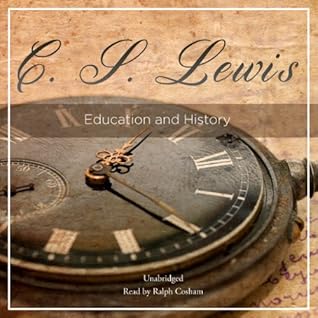- Bíblia
- Leia a Bíblia
- Versões da Bíblia
- Verso do dia
- Planos de Leitura
- Versos por Tópico
- Books of the Bible
- Imagens bíblicas
- Estude
- Comentários
- Concordâncias
- Dicionários
- Enciclopédias
- Sermões
- Bible Atlas & Maps
- BP Wiki
- Devocionais
- Devocionais de hoje
- Light of the World
- Todos os devocionais
- Inspirational Quotes
- Mais
- Picture Quotes
- Videos
- Inspirador
- Estudo da Bíblia
- O que a Bíblia diz
- Bible Q&As
- Daily Bread
- Bible by Genre
- Bible Stories
- Random Bible Verse
- Comunidade
- Store
Education and History
by C.S. Lewis
This volume of short essays and other pieces by C. S. Lewis is part of a larger collection, C. S. Lewis: Essay Collection and Other Short Pieces. In addition to his many books, letters, and poems, C. S. Lewis wrote a great number of essays and shorter pieces on various subjects. He wrote extensively on Christian theology and the defense of faith but also on ethical issues and the nature of literature and storytelling. Within this audiobook is a treasure trove of Lewis' reflections on diverse topics.
This volume includes:
1. Learning in War-Time
2. Bulverism, or The Foundation of Twentieth-Century Thought
3. The Founding of the Oxford Socratic Club
4. My First School
5. Democratic Education
6. Blimpophobia
7. Private Bates
8. Meditation in a Toolshed
9. On the Transmission of Christianity
10. Modern Man and His Categories of Thought
11. Historicism
12. The Empty Universe
13. Interim Report
14. Is History Bunk?
15. Before We Can Communicate
Public Domain (P)2013 Blackstone Audio, Inc.
This volume includes:
1. Learning in War-Time
2. Bulverism, or The Foundation of Twentieth-Century Thought
3. The Founding of the Oxford Socratic Club
4. My First School
5. Democratic Education
6. Blimpophobia
7. Private Bates
8. Meditation in a Toolshed
9. On the Transmission of Christianity
10. Modern Man and His Categories of Thought
11. Historicism
12. The Empty Universe
13. Interim Report
14. Is History Bunk?
15. Before We Can Communicate
Public Domain (P)2013 Blackstone Audio, Inc.
BUY NOW
Audiobook
Published November 15th 2013 by Blackstone Audio, Inc.
Se inscrever
© 2025 Bibleportal.com Todos os direitos reservados.

Clive Staples Lewis was born in Ireland, in Belfast on 29 November 1898. His mother was a devout Christian and made efforts to influence his beliefs. When she died in his early youth her influence waned and Lewis was subject to the musings and mutterings of his friends who were decidedly agnostic and atheistic. It would not be until later, in a moment of clear rationality that he first came to a belief in God and later became a Christian.
C. S. Lewis volunteered for the army in 1917 and was wounded in the trenches in World War I. After the war, he attended university at Oxford. Soon, he found himself on the faculty of Magdalen College where he taught Mediaeval and Renaissance English.
Throughout his academic career he wrote clearly on the topic of religion. His most famous works include the Screwtape Letters and the Chronicles of Narnia. The atmosphere at Oxford and Cambridge tended to skepticism. Lewis used this skepticism as a foil. He intelligently saw Christianity as a necessary fact that could be seen clearly in science.
"Surprised by Joy" is Lewis's autobiography chronicling his reluctant conversion from atheism to Christianity in 1931.
... Show more